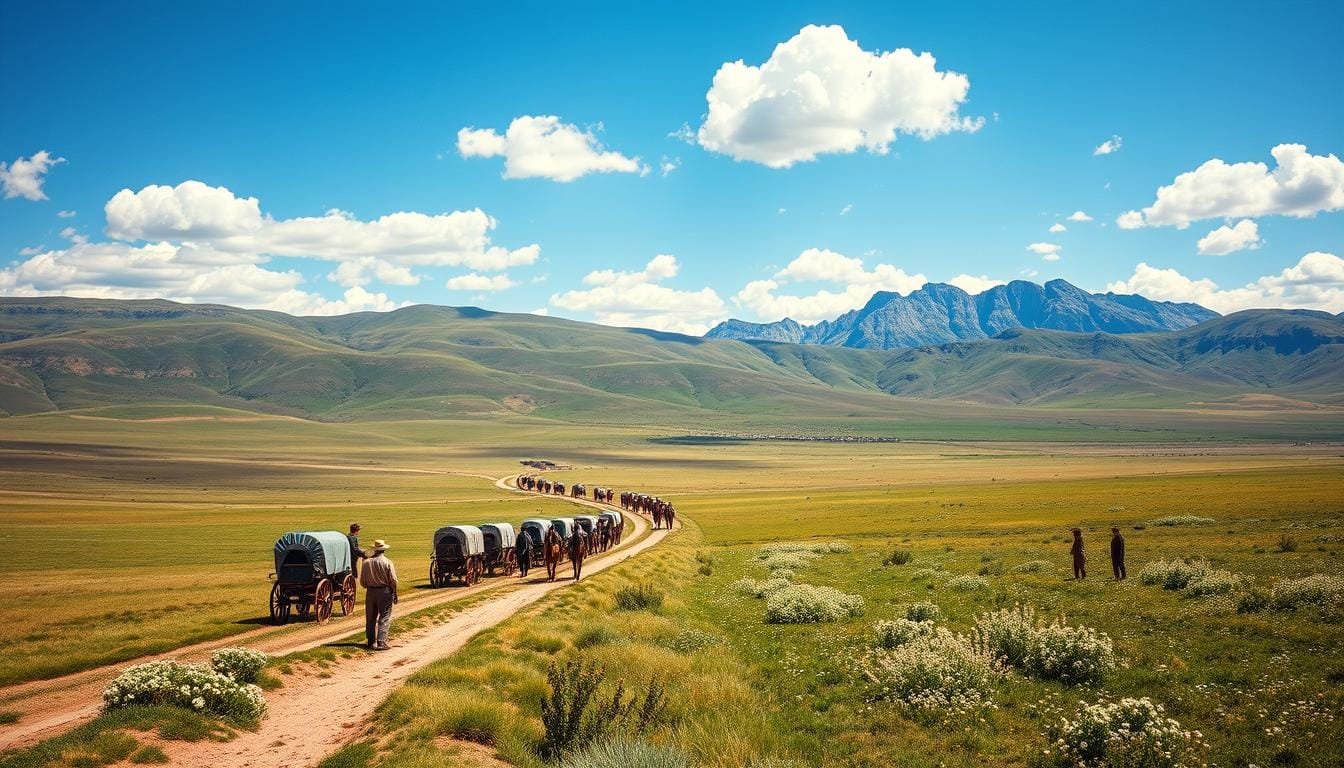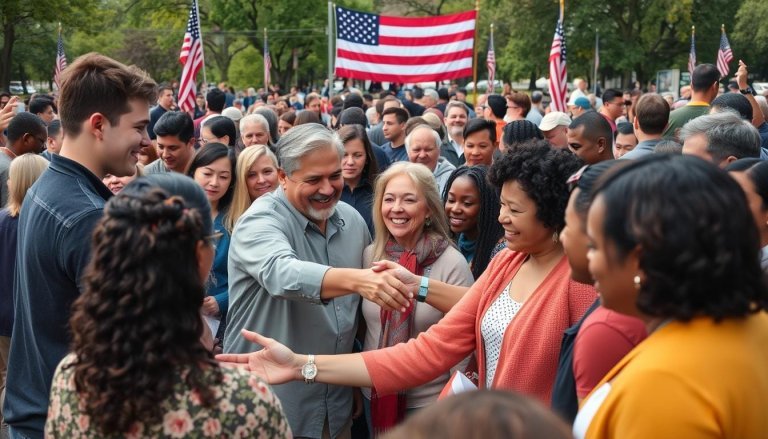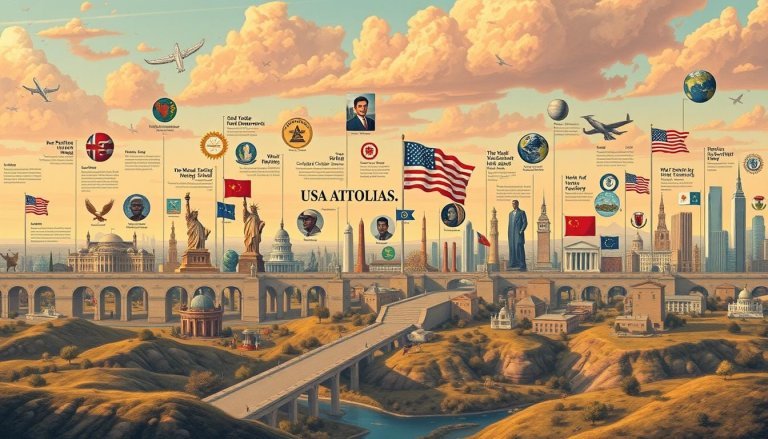The USA’s history has deeply influenced its society, from the start to now. Native Americans first settled the land around 15,000 BC. This started a long journey of cultural growth.
European colonization in the late 15th century began a new chapter in American history. The American Revolution (1765-1783) was a key moment. It led to freedom and a new national identity.
The Constitution and Bill of Rights were created during this time. They set the stage for democracy in America. These documents have shaped society for many years.
Later, events like territorial growth, industrialization, and global conflicts changed American culture and values. After World War II, the USA became a world leader. This greatly influenced its society, politics, economy, and culture worldwide.
From Colonial Roots to Independence: Foundations of American Society
The journey from colonial America to an independent nation shaped the USA’s identity. This transformation laid the groundwork for the democratic values that define American society today.
Early Colonial Settlements and Cultural Foundations
Colonial America was a melting pot of European influences. English, Spanish, and French settlers brought their cultures to the New World. This diversity set the stage for a unique American identity.
The American Revolution’s Impact on National Identity
The American Revolution was a turning point in shaping national identity. It wasn’t a unanimous movement – historian Robert M. Calhoon estimated only 40-45% of the free population supported it. The slogan “No Taxation Without Representation” became a rallying cry after the Boston Tea Party in 1773.
Constitutional Framework and Democratic Values
The Constitution and Bill of Rights established key principles of American governance. These documents protect individual liberties and set up checks and balances. They continue to influence American society and politics, fostering a sense of unity among the states.
- Separation of powers
- Protection of individual rights
- Checks and balances system
These founding principles created a framework for the democratic values that define the United States today. They laid the foundation for a distinct national identity that continues to evolve.
USA History Impact: Expansion, Civil War, and Social Transformation

The 19th century was a time of big changes in America. The country grew bigger, faced internal fights, and dealt with social issues that still affect us today.
Westward Expansion and Its Consequences
Westward expansion brought new lands into the United States. But it came with a high price. Tens of thousands of American Indians lost their lands. The U.S. taking over the Southwest led to racial issues and unfair justice for Mexicans.
The Civil War’s Profound Impact
The Civil War lasted from 1861 to 1865. It was a major turning point in American history. It cost about 851,000 lives, which was 2% of the U.S. population at the time.
The war led to new technologies like ironclad warships and machine guns. It also left a rich literary legacy, with over 60,000 books written about it.
Reconstruction and Civil Rights Struggles
The Reconstruction era (1865-1877) tried to bring the South back together and give rights to freed slaves. Sixteen African Americans served in Congress during this time. But, progress was met with violence from white supremacist groups.
The civil rights movement later emerged to fight for equality. These events sparked a social change that still affects American society today.
| Period | Key Events | Impact |
|---|---|---|
| Westward Expansion | Acquisition of new territories | Displacement of Native Americans, conflicts with Mexico |
| Civil War (1861-1865) | Union vs Confederacy, Emancipation Proclamation | Abolition of slavery, massive loss of life, technological advancements |
| Reconstruction (1865-1877) | Southern readmission to Union, civil rights legislation | Brief period of African American political participation, establishment of public schools |
The Rise of American Global Influence
The world wars changed America forever. The USA became a global leader, starting the American century. This new time saw the nation’s power grow in politics, economy, and culture.
The Cold War made America’s role clear. For years, the US battled the Soviet Union. This rivalry pushed technology and economy forward, making America’s lead stronger.
American culture became famous worldwide. Movies, music, and brands showed the American lifestyle. This soft power added to the nation’s strength.
| Aspect | Impact on Global Influence |
|---|---|
| Military Power | Unrivaled supremacy post-Cold War |
| Economic Influence | Lifted millions out of poverty globally |
| Cultural Export | Widespread adoption of American culture |
| Foreign Policy | Shaped international relations worldwide |
In the 21st century, America faced new challenges. China and Russia’s rise, along with global problems, tested its power. Today, the US deals with a changing world, adjusting its influence.
Conclusion
The United States has grown from its colonial days to a global leader. Its identity, shaped by revolution and growth, keeps changing. The Continental Army’s 231,771 soldiers started a nation based on freedom and democracy.
Cultural diversity is a big part of American life. The Civil War, from 1861 to 1865, changed the country’s social structure. It showed big differences in wealth, with Southerners having more than Northerners.
The Constitution made the President the top military leader. This rule, along with state militias, has shaped America’s military since 1789. As the U.S. deals with new challenges, its history will help guide it.
Today, America talks a lot about equality and its role worldwide. These talks show how history still affects the nation. As the U.S. faces new issues, its values of democracy and diversity will help it move forward.



